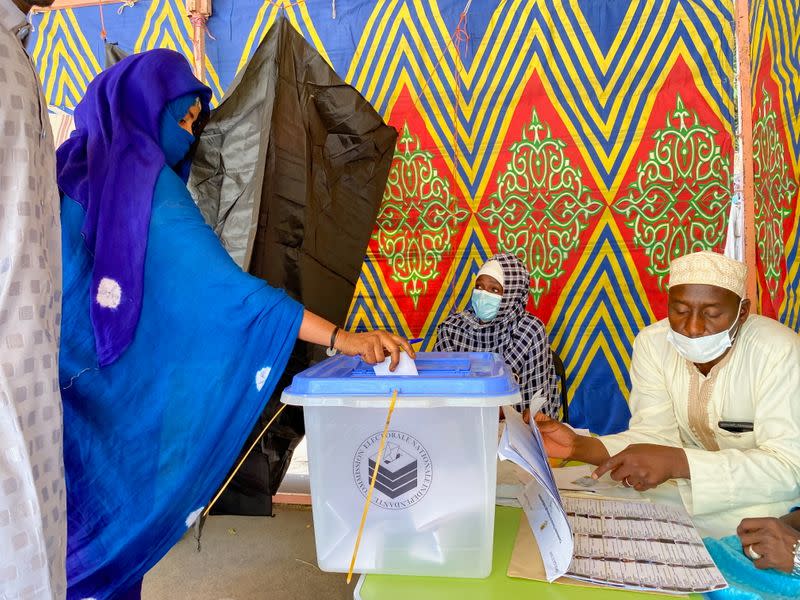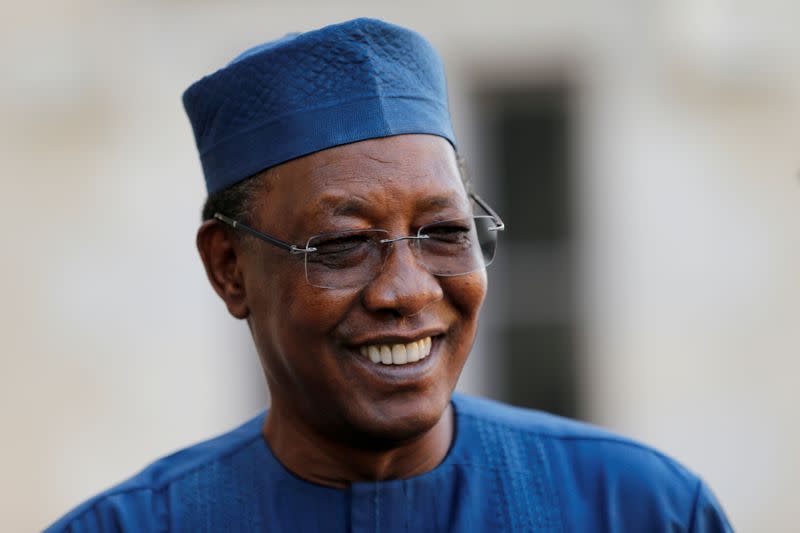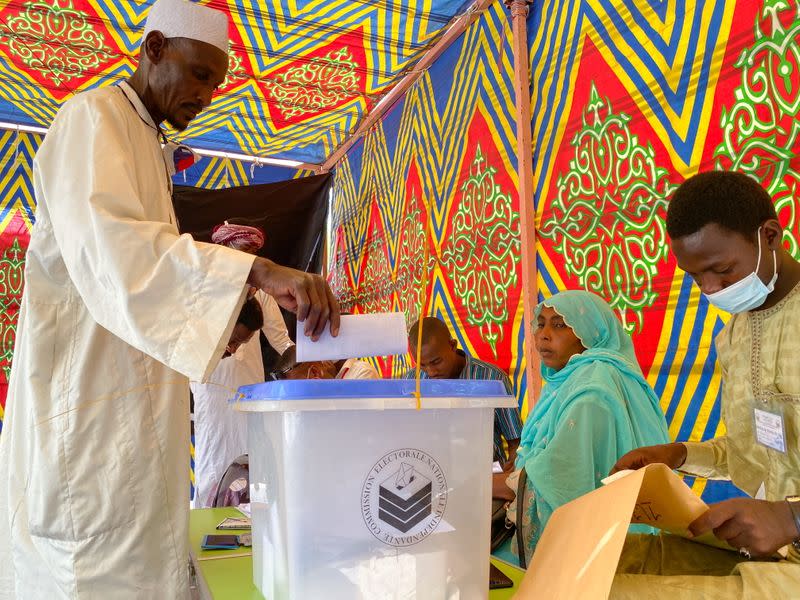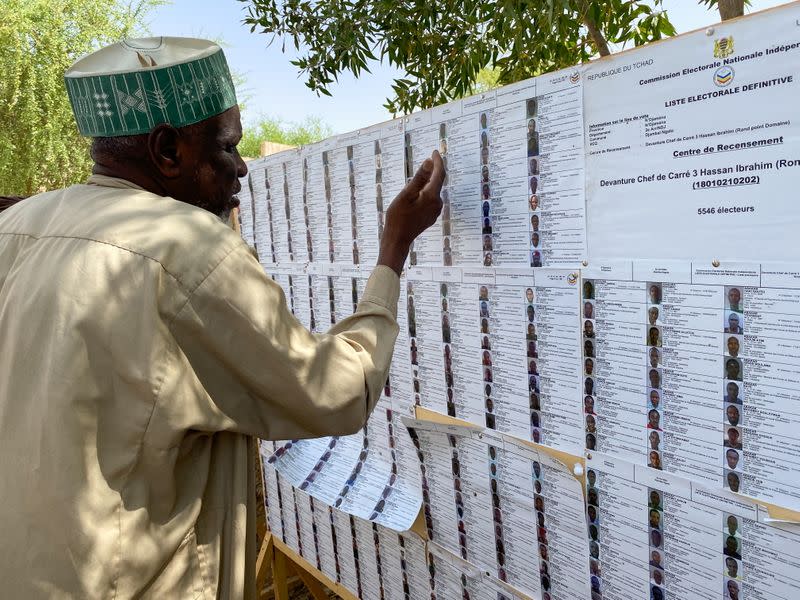Chad count votes as Deby seeks sixth term after 30 years in power
By Mahamat Ramadane and Joel Kouam
N'DJAMENA (Reuters) - Vote counting has started in Chad after a tense presidential election on Sunday that is likely to see President Idriss Deby extend his three-decade rule, despite signs of growing discontent over his handling of the nation's oil wealth.
Election officials began counting ballots at a polling station in centre of the capital N'Djamena immediately after polls closed, watched by a group of observers, a Reuters reporter said.
The election commission has until April 25 to announce provisional results.
Deby, 68, was the first to cast his ballot at a polling station in the capital N'Djamena. He is one of Africa's longest-serving leaders and an ally of Western powers in the fight against Islamist militants in West and Central Africa.
"I'm calling on all Chadians to come out and vote for the candidate of their choice who will have to tackle the major challenges facing our country over the next six years," Deby told journalists after voting.
Deby seized power in 1990 in an armed rebellion, and in 2018 pushed through a new constitution that could let him stay in power until 2033 - even as it reinstated term limits.
He has relied on a firm grip over state institutions and one of the region's most capable militaries to maintain power. Deby said recently he knew in advance that he would win again "as I have done for the last 30 years".
"Many of you, my daughters and sons, were not yet born when I took power in 1990," he said at his final campaign rally on Friday. "You have asked me to be a candidate for this sixth term."
RIVALS
Among Deby's six rivals is former prime minister Albert Pahimi Padacke, but several leading opponents are boycotting the race, including the 2016 runner-up Saleh Kebzabo, who has vowed to make Chad "ungovernable" if Deby wins.
Observers are closely watching the turnout after several recent anti-government demonstrations turned violent. A heavy military presence patrolled the capital on Sunday.
In the Moursal and Chagoua southern neighbourhoods of N'Djamena, considered as opposition strongholds, few voters had shown up at polling stations by mid-morning.
Jules Ngarbatina, a resident of Moursal said were scared of coming out in large numbers because they feared reprisals from other who supported the boycott.
Yacine Abderaman Sakine, leader of the Reformist Party, who joined the call for a boycott, said Chadians were tired of pretending that elections are free and fair.
"The lack of enthusiasm in polling stations today is a strong message to those who confiscate power by force," Sakine told Reuters.
On Friday authorities said they had arrested several people, including at least one opposition leader, for what they said was a plot to assassinate politicians and bomb polling stations and the electoral commission headquarters.
The opposition said the arrests showed mounting repression under Deby. The government rejects the accusations of human rights abuses.
Chad has come under increasing public pressure over a flagging economy as low prices for its main export, oil, in recent years forced cutbacks in public spending and sparked labour strikes.
(Writing by Aaron Ross and Bate Felix; Editing by Susan Fenton, Gareth Jones and David Evans)

 Yahoo Movies
Yahoo Movies 




